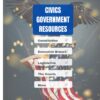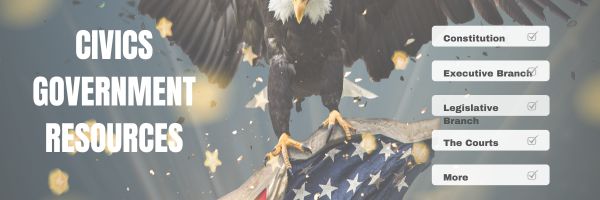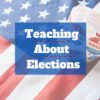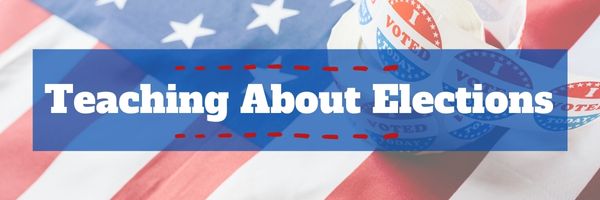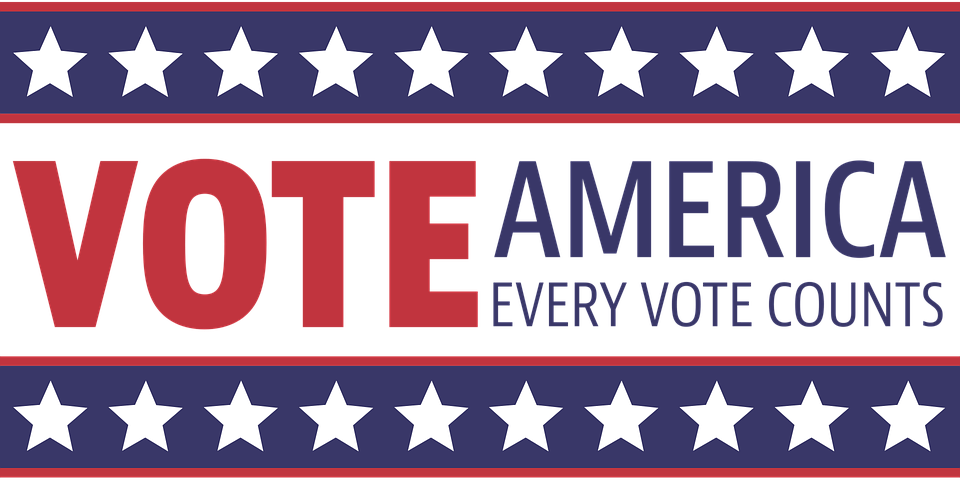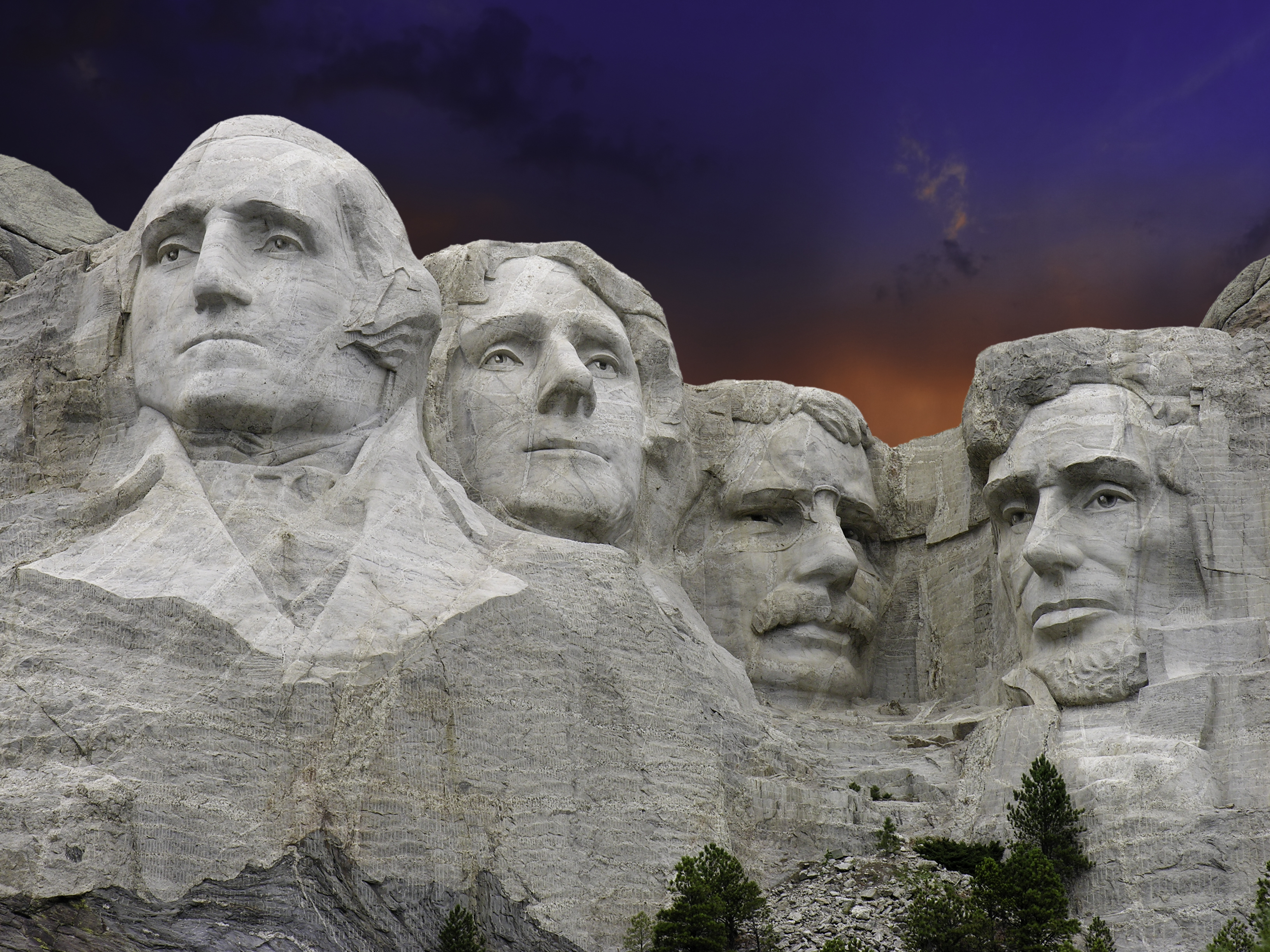Category: Civics
4 Websites that Explain Elections
In about half the world–mostly those where people live under socialism, communism, dictators, or autocracies–law and order is decided for the people. In the 1700’s, when the brand new United States of America, newly liberated from the British aristocratic rule that relied on Kings and Queens, wrote its very first Constitution and Bill of Rights, it decided to establish a system of government by the people. Called ‘the Grand Experiment’, the founders empowered ordinary citizens–such as farmers, shopkeepers, laborers, and seamstresses–to elect the individuals who would protect America’s shores, our freedoms, and our way of life.
Over two hundred years after that mandate, it is still unclear whether it will work. In the 1850’s, Abraham Lincoln warned:
“Elections belong to the people. It’s their decision. If they decide to turn their back on the fire and burn their behinds, then they will just have to sit on their blisters.”
A hundred years after that, Gore Vidal bemoaned:
“Half of the American people have never read a newspaper. Half never voted for President. One hopes it is the same half.”
Winston Churchill called democracy “…the worst form of Government except for all those other forms that have been tried from time to time.… “. In short, it is messy.
Still, every four years, Americans must make critical choices that will shape our nation’s democracy. Citizens are expected to research their options and then vote for the candidates most qualified to fulfill the country’s goals. Thomas Jefferson called education a “…vital requisite for our survival as a free people.”
This year, on Tuesday, November 3, 2020, we will elect every one of 435 members of the House of Representatives, one-third of the one hundred Senators, and the most powerful position in the country, the President. I’ve curated a list of websites to provide students with the background knowledge on the election process that will prepare them for the day they’ll be asked to cast their vote and decide the future. The first few explain elections in general and the next teach the process through gamification.
Share this:
- Click to share on Facebook (Opens in new window) Facebook
- Click to share on X (Opens in new window) X
- Click to share on LinkedIn (Opens in new window) LinkedIn
- Click to share on Pinterest (Opens in new window) Pinterest
- Click to share on Telegram (Opens in new window) Telegram
- Click to email a link to a friend (Opens in new window) Email
- More
27 Online Resources About Civics and Government
Here are popular online resources to teach about Civics and Government. Click here for updates on this list:
- Argument Wars
- CaseMaker–for 6th-8th grade
- Civics games
- Congress
- Court Quest
- C-Span–Congress at work in video
- Electoral College—humourous video
- Executive Command
- How Laws are Made
- Law Craft
- Legislative and Executive Branch Quiz
- Legislative Branch Qualifications
- Legislative Branch Quiz
- Legislative Branch Vocabulary
- Powers of Congress
- Public Policy and the Executive and Legislative Branches Quiz
- Public Policy Flashcards
- Three Branches of Government Review
- What’s inside Buckingham Palace
- Win the White House
Constitution
Share this:
- Click to share on Facebook (Opens in new window) Facebook
- Click to share on X (Opens in new window) X
- Click to share on LinkedIn (Opens in new window) LinkedIn
- Click to share on Pinterest (Opens in new window) Pinterest
- Click to share on Telegram (Opens in new window) Telegram
- Click to email a link to a friend (Opens in new window) Email
- More
The Supreme Court in America
When you think of the Supreme Court, you think of old people in black robes that dispassionately determine the fate of the country’s laws. That’s all true, but there’s more to maintaining law and order than a podium and a gavel. The Supreme Court is the apex of one of three branches in the American government:
- The Legislative (the House and the Senate) passes laws
- The Executive (the President) executes the laws
- The Judicial (all courts in the United States) judges whether laws abide by the Constitution
The Supreme Court consists of nine individuals who are nominated by the President and voted in by the Senate. Once approved, they serve for life, the hope being that this allows them to judge apolitically, based on the merits of the case rather than political leaning. These guidelines are not without controversy but are critical to a healthy, democratic environment.
Share this:
- Click to share on Facebook (Opens in new window) Facebook
- Click to share on X (Opens in new window) X
- Click to share on LinkedIn (Opens in new window) LinkedIn
- Click to share on Pinterest (Opens in new window) Pinterest
- Click to share on Telegram (Opens in new window) Telegram
- Click to email a link to a friend (Opens in new window) Email
- More
6 Websites that Explain Elections
In about half the world–mostly those where people live under socialism, communism, dictators, or autocracies–law and order is decided for the people. In the 1700’s, when the brand new United States of America, newly liberated from the British aristocratic rule that relied on Kings and Queens, wrote its very first Constitution and Bill of Rights, it decided to establish a system of government by the people. Called ‘the Grand Experiment’, the founders empowered ordinary citizens–such as farmers, shopkeepers, laborers, and seamstresses–to elect the individuals who would protect America’s shores, our freedoms, and our way of life.
Over two hundred years after that mandate, it is still unclear whether it will work. In the 1850’s, Abraham Lincoln warned:
“Elections belong to the people. It’s their decision. If they decide to turn their back on the fire and burn their behinds, then they will just have to sit on their blisters.”
A hundred years after that, Gore Vidal bemoaned:
“Half of the American people have never read a newspaper. Half never voted for President. One hopes it is the same half.”
Winston Churchill called democracy “…the worst form of Government except for all those other forms that have been tried from time to time.… “. In short, it is messy.
Still, every four years, Americans must make critical choices that will shape our nation’s democracy. Citizens are expected to research their options and then vote for the candidates most qualified to fulfill the country’s goals. Thomas Jefferson called education a “…vital requisite for our survival as a free people.”
This year, on Tuesday, November 3, 2020, we will elect every one of 435 members of the House of Representatives, one-third of the one hundred Senators, and the most powerful position in the country, the President. I’ve curated a list of websites to provide students with the background knowledge on the election process that will prepare them for the day they’ll be asked to cast their vote and decide the future. The first few explain elections in general and the next teach the process through gamification.
Share this:
- Click to share on Facebook (Opens in new window) Facebook
- Click to share on X (Opens in new window) X
- Click to share on LinkedIn (Opens in new window) LinkedIn
- Click to share on Pinterest (Opens in new window) Pinterest
- Click to share on Telegram (Opens in new window) Telegram
- Click to email a link to a friend (Opens in new window) Email
- More
Are We Teaching Enough Civics in Schools?
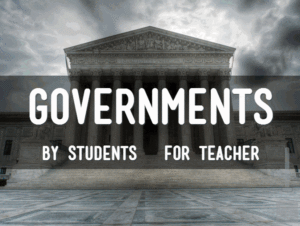 Do you ever worry that core subjects are getting lost in the muddle of all the other stuff that is becoming part of the accepted curriculum in K-12 schools? I’m purposely not naming any of those because that’s not the subject of this article so I don’t want to distract (but feel free to add your thoughts in the comments). One of the becoming-forgotten subjects I have begun to fear is Civics so I loved this article from Commonwealth Magazine on how this understanding our our form of government in America is not forgotten, in fact taught well:
Do you ever worry that core subjects are getting lost in the muddle of all the other stuff that is becoming part of the accepted curriculum in K-12 schools? I’m purposely not naming any of those because that’s not the subject of this article so I don’t want to distract (but feel free to add your thoughts in the comments). One of the becoming-forgotten subjects I have begun to fear is Civics so I loved this article from Commonwealth Magazine on how this understanding our our form of government in America is not forgotten, in fact taught well:
Mass. getting good grades on civics, history
AS THE COUNTRY engages in a heated debate over what civic education should look like, a new report by The Thomas B. Fordham Institute suggests that the nation should emulate the model we’ve developed here in the Commonwealth.
The State of State Standards for Civics and U.S. History in 2021 grades every state on their civics and history standards that guide teaching and learning in these content areas. Massachusetts earned a grade of A- (the highest grade earned by any state) and is listed as one of only five exemplar states.
For more websites that teach civics for MS and HS, check out these:
Share this:
- Click to share on Facebook (Opens in new window) Facebook
- Click to share on X (Opens in new window) X
- Click to share on LinkedIn (Opens in new window) LinkedIn
- Click to share on Pinterest (Opens in new window) Pinterest
- Click to share on Telegram (Opens in new window) Telegram
- Click to email a link to a friend (Opens in new window) Email
- More
11 Websites that Explain Elections
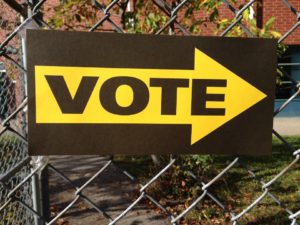 I published this article in early October, but am republishing it as our American elections are upon us. I got a lot of good feedback from readers, as well as a few new sites, so the collection has increased from 8 to 11:
I published this article in early October, but am republishing it as our American elections are upon us. I got a lot of good feedback from readers, as well as a few new sites, so the collection has increased from 8 to 11:
***
In about half the world’s nations–such as those ruled by socialism, communism, dictators, and autocracies–law and order are decided by government agencies, often people placed in power by those already in power. When America wrote its Democracy-based Constitution and Bill of Rights in the late 1700’s, we chose a different route. Called ‘the Grand Experiment’, the founders empowered ordinary citizens–farmers, shopkeepers, laborers, and seamstresses–to elect the individuals who would protect America’s shores, our freedoms, and our way of life. Fifty years after our inception, it was still unclear whether it would work. In fact, Abraham Lincoln warned:
“Elections belong to the people. It’s their decision. If they decide to turn their back on the fire and burn their behinds, then they will just have to sit on their blisters.”
A hundred years later, Gore Vidal bemoaned:
“Half of the American people have never read a newspaper. Half never voted for President. One hopes it is the same half.”
Still, every four years, Americans make a critical choice that will shape our nation’s path. Because decisions are made by the people rather than government agencies, citizens are expected to research their options and then vote for the Presidential candidate most qualified to fulfill the country’s goals.
With this most influential position up for grabs in just a few months, I’ve curated a list of eight websites to share with students as they prepare for the day they’ll be asked to cast their vote and decide the future. The first five explain elections in general and the next three teach the process through gamification.
Share this:
- Click to share on Facebook (Opens in new window) Facebook
- Click to share on X (Opens in new window) X
- Click to share on LinkedIn (Opens in new window) LinkedIn
- Click to share on Pinterest (Opens in new window) Pinterest
- Click to share on Telegram (Opens in new window) Telegram
- Click to email a link to a friend (Opens in new window) Email
- More
Why is the Supreme Court So Important — and How to Explain That to Students
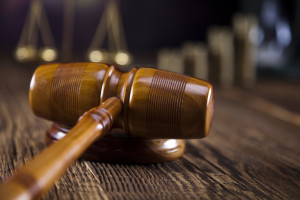 When you think of the Supreme Court, you think of old people in black robes that dispassionately determine the fate of the country’s laws. That’s all true, but there’s more to maintaining law and order than a podium and a gavel. The Supreme Court is the apex of one of three branches in the American government:
When you think of the Supreme Court, you think of old people in black robes that dispassionately determine the fate of the country’s laws. That’s all true, but there’s more to maintaining law and order than a podium and a gavel. The Supreme Court is the apex of one of three branches in the American government:
- The Legislative (the House and the Senate) passes laws
- The Executive (the President) executes the laws
- The Judicial (all the courts in the United States from the local courts to the Supreme Court) judges whether the laws and their execution abide by the nation’s Constitution
The Supreme Court consists of nine individuals who are nominated by the President and voted in by the Senate. Once approved, they serve for life, the hope being that this allows them to judge apolitically, based on the merits of the case rather than political leaning. These guidelines are not without controversy but are critical to a healthy, democratic environment.
But this year, an election year, is different. The death of Antonin Scalia leaves the court split evenly between those who lean Democrat and those who lean Republican. Rarely in our history has an outgoing president — in his last year — been tasked with selecting such a critical Supreme Court justice.
Really, it’s much more complicated than what I’ve described, but this isn’t the place to unravel what could become a Gordian knot of intrigue over the next few months. Suffice to say, this process will overwhelm the media and your students will want to know more about what is normally a dull and boring process and why it has become foundational to our future. This provides a rare opportunity to educate them on the court system in America.
Share this:
- Click to share on Facebook (Opens in new window) Facebook
- Click to share on X (Opens in new window) X
- Click to share on LinkedIn (Opens in new window) LinkedIn
- Click to share on Pinterest (Opens in new window) Pinterest
- Click to share on Telegram (Opens in new window) Telegram
- Click to email a link to a friend (Opens in new window) Email
- More
25 Websites on Civics
 These are mostly for MS, a mixture of flashcards, games and simulations. Very effective:
These are mostly for MS, a mixture of flashcards, games and simulations. Very effective:
- Argument Wars
- Branches of Power
- Civics Game Room
- Civics games
- Congress
- Congress for Kids
- Court Quest
- C-Span–Congress at work in video
- Elections—the Game
- Electoral College—humourous video
- Executive Command
- How Laws are Made
- Law Craft
- Legislative and Executive Branch Quiz
- Legislative Branch Qualifications
- Legislative Branch Quiz
- Legislative Branch Vocabulary
- Powers of Congress
- Public Policy and the Executive and Legislative Branches Quiz
- Public Policy Flashcards
- Public Policy Matching
- Supreme Decision
- Three Branches of Government Review
- We the Jury
- Win the White House
Share this:
- Click to share on Facebook (Opens in new window) Facebook
- Click to share on X (Opens in new window) X
- Click to share on LinkedIn (Opens in new window) LinkedIn
- Click to share on Pinterest (Opens in new window) Pinterest
- Click to share on Telegram (Opens in new window) Telegram
- Click to email a link to a friend (Opens in new window) Email
- More



